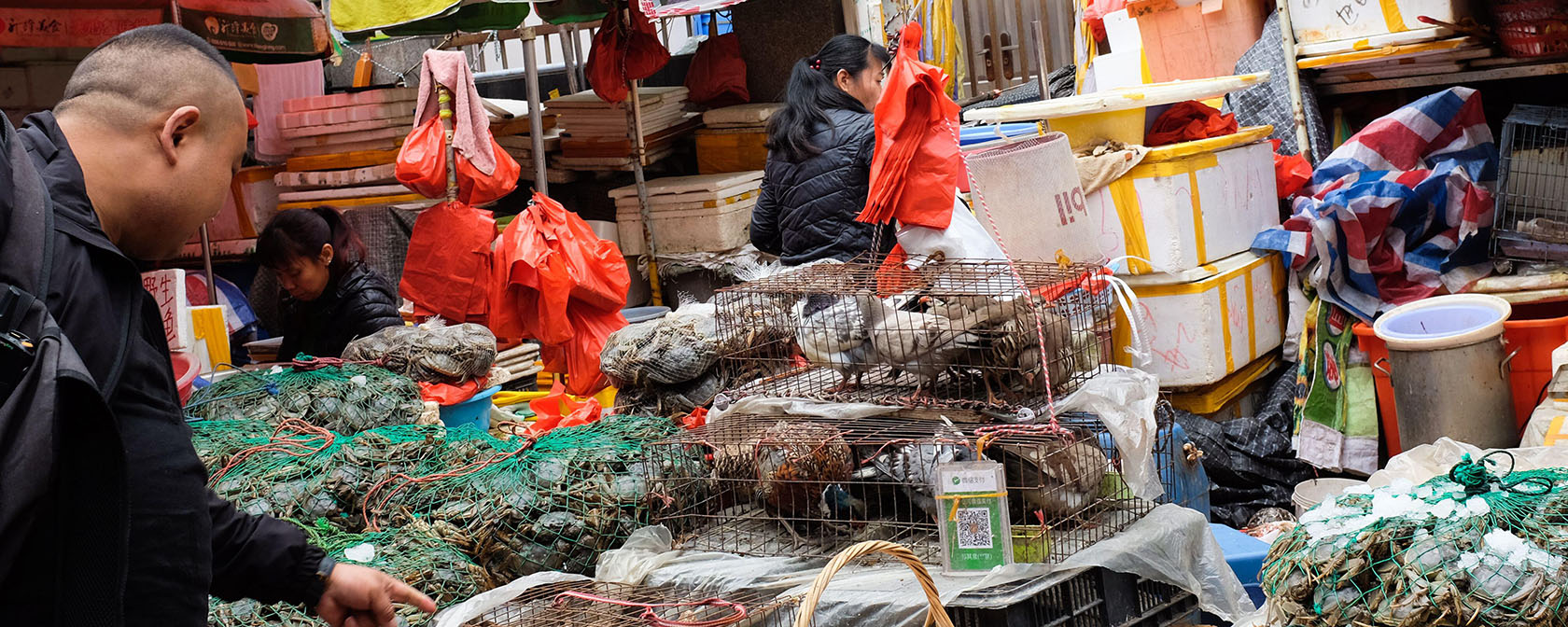By Sara Amundson and Kitty Block
The nation’s most authoritative voice on infectious diseases today sounded a stern warning about the dangers of the wildlife trade and its relationship to pandemic diseases like COVID-19.
In an interview with Fox News, Dr. Anthony S. Fauci called for the global community to pressure China and other nations to close down their wildlife markets, where live animals are sold and slaughtered for food.
Fauci, the director of the National Institute of Allergy and Infectious Diseases and a member of the White House coronavirus task force, said: “It just boggles my mind that how when we have so many diseases that emanate out of that unusual human-animal interface that we don’t just shut [wildlife markets] down.”
“I don’t know what else has to happen to get us to appreciate that,” Dr. Fauci said. “I think there are certain countries in which this is very commonplace. I would like to see the rest of the world really lean with a lot of pressure on those countries that have that, because what we’re going through right now is a direct result of that.”
Wildlife markets have been implicated in the spread of several disease outbreaks in recent years, including Severe Acute Respiratory Syndrome (SARS), avian influenza or bird flu, Ebola and Middle Eastern Respiratory Syndrome (MERS). The novel coronavirus pandemic was also traced to a wildlife market in Wuhan, China.
Yet, despite this strong evidence of the link between wildlife trade and disease, we have failed to see decisive permanent action from key nations on ending or even addressing the wildlife trade and its connections to pandemic risk.
While the latest coronavirus pandemic led China to announce a ban on wildlife consumption, it has not yet codified that ban into law (although one city, Shenzhen, and some jurisdictions in China have acted independently to ban the wildlife trade). To make matters worse, this month Chinese authorities even recommended a product that contains bear bile as a treatment for coronavirus patients, encouraging further human consumption of wildlife in a time when it needs to be shut down entirely. And at the G20 meeting last week, world leaders, including President Trump, missed a chance to address the issue of ending wildlife markets.
Besides China, wildlife markets are found in countries including Thailand, Indonesia, Malaysia and South Africa. Other situations where animals, both wild and domestic, are kept in close confinement, can also spawn disease. The MERS virus, for instance, is said to have originated at a camel market in Saudi Arabia. And in the United States, the H1N1 swine flu originated in factory farms where animals are held in extreme confinement, spreading quickly from the animals to humans across the United States and the globe.
In the United States too, there are wildlife markets in parts of San Francisco, New York City and other areas, where live frogs and reptiles are sold. Our country is also responsible for a rampant trade in exotic pets. Wild-caught animals are imported from all over the world, and species are mixed and held in close confinement under poor conditions at wildlife dealers’ premises. Some are turned loose, others die prematurely due to improper care and many more die during transport and because of poor conditions at dealer warehouses. These animals have also transmitted diseases, like the monkeypox outbreak in the United States in 2003.
The HSUS is now fighting in court to force the U.S. Fish and Wildlife Service to release critical data tracking wildlife imports and exports so the public has access to this information that can impact both animal and human health.
The ongoing coronavirus crisis, which could result in the deaths of hundreds of thousands of Americans and millions of other people the world over, has taught us many important lessons about what we should and shouldn't be doing in order to keep ourselves healthy. One of the most important is the link between wildlife markets, which cause so much animal suffering, and the public health risks of a pandemic. We couldn’t agree more with Dr. Fauci when he calls on countries to “shut down those things right away.”
Kitty Block is President and CEO of the Humane Society of the United States.




